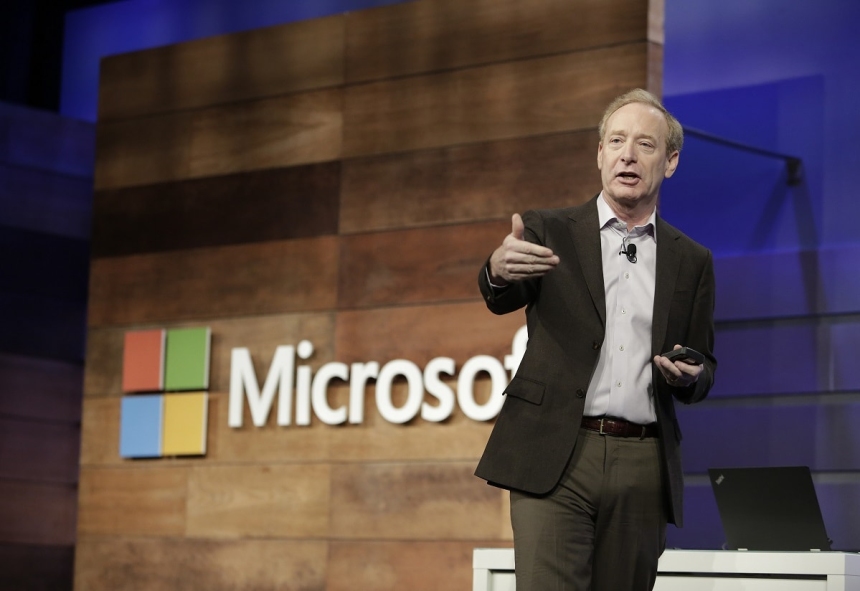Amid increasing concerns over cybersecurity, Microsoft President Brad Smith will address a House of Representatives panel on homeland security to discuss the company’s responses to recent cyber intrusions by Chinese and Russian hackers. These breaches have sparked a debate over Microsoft’s security measures and transparency. As a significant player in the tech industry and a key provider to the U.S. government, Microsoft’s approach to cybersecurity is under intense scrutiny. The hearing comes after revelations that hackers linked to China accessed 60,000 U.S. State Department emails last year, and a Russian group infiltrated senior staff emails at Microsoft earlier this year.
Microsoft 365, previously known as Office 365, is a comprehensive suite of productivity tools launched by Microsoft in 2011. It offers a range of applications including Word, Excel, and Outlook, alongside cloud services that facilitate collaboration and communication. Available through subscription, Microsoft 365 integrates with various security features and compliance tools, catering to businesses of all sizes. Despite its extensive functionality, the platform has faced challenges related to cybersecurity, especially as it serves as a critical infrastructure for many organizations worldwide.
Security Lapses and Accountability
The recent security breaches have led to significant criticism of Microsoft’s cybersecurity practices. The Cyber Safety Review Board (CSRB), established by U.S. Secretary of Homeland Security Alejandro Mayorkas, released a report in April condemning Microsoft’s lack of transparency regarding the Chinese hack. The board argued that the breach was preventable and highlighted gaps in Microsoft’s security protocols. This scrutiny is further compounded by Microsoft’s role as a major vendor to the U.S. government, raising concerns about the robustness of its security measures in protecting sensitive information.
During the upcoming hearing, lawmakers will probe into these security lapses and Microsoft’s strategies to fortify its defenses against future cyberattacks. Congressman Mark Green from Mississippi has expressed the need to understand the security gaps that allowed these breaches to occur. The panel aims to evaluate Microsoft’s response to the CSRB’s findings and the company’s commitment to enhancing its cybersecurity framework. This examination is critical as cyber threats continue to evolve, posing significant risks to both public and private sectors.
Microsoft’s Security Initiatives
In response to the escalating criticism, Microsoft has pledged to prioritize security across its platforms. In November, the company unveiled a new cybersecurity initiative designed to address the growing scale and severity of cyberattacks. This initiative includes refining security processes and enforcing stricter benchmarks to safeguard its systems and users. Microsoft has emphasized that security will take precedence over other features, reflecting its dedication to strengthening its defenses and building trust among its customers and partners.
Comparatively, other tech giants like Google and Amazon have also faced cybersecurity challenges but have managed them with varying degrees of transparency and effectiveness. Microsoft’s recent breaches and the subsequent fallout underscore the critical need for robust security practices and prompt, transparent responses to cyber incidents. This scrutiny from both the government and the industry highlights the broader implications of cybersecurity lapses in an era where digital infrastructure is integral to national and economic security.
Key Inferences
- Microsoft’s security practices are under examination due to recent high-profile breaches.
- The company faces pressure to improve transparency and strengthen its cybersecurity measures.
- Lawmakers and industry peers are closely watching how Microsoft addresses these challenges.
As Microsoft navigates the fallout from recent cyberattacks, its response and ongoing initiatives will be pivotal in shaping its future security posture. The company’s commitment to prioritizing security and addressing the criticisms outlined by the Cyber Safety Review Board will be critical in restoring confidence among stakeholders. This scrutiny serves as a reminder of the evolving nature of cyber threats and the importance of proactive and transparent security practices. For businesses and governments alike, robust cybersecurity measures are not just an operational necessity but a foundational element of trust and resilience in the digital age.










